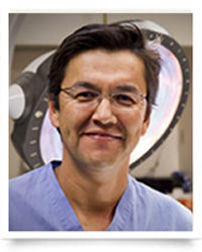“How Long Does It Take My Heart To Heal?” Asks Carolyn
Written By: Adam Pick, Patient Advocate, Author & Website Founder
Page Last Updated: February 28, 2025
I just received a great question from Carolyn about ‘heart healing’ after valve repair or valve replacement surgery. In her email, Carolyn writes, “Adam – I’ve read a lot on your website about the time needed for the sternum to heal. But, what about the heart? After it’s stopped, opened, fixed and restarted, how long does it take for the cardiac muscle to heal? Thanks! Carolyn”

I wanted to provide Carolyn an expert opinion, so I contacted Dr. Luis Castro, a leading heart valve surgeon.
During his 28-year career, Doctor Luis Castro has performed over 5,000 cardiac procedures of which 60% included valvular treatment.

During our exchange, Dr. Castro offered several insights about how our bodies heal after heart valve surgery. First, Dr. Castro compared the healing rate of the sternum to the healing rate of our cardiac muscle.
The consensus regarding the sternum/breast bone or any small or large incision involving the chest wall is 8 weeks for proper healing in most adults. Please remember… No heavy lifting during this period. The heart, however, is a bit different in that cardiac physiology has usually improved greatly after operation. There is more blood flow after surgery than existed many years prior to operation. And, the impact of valve stenosis, or valve leakage, has been rectified after proper valve repair or valve replacement. Overall, the heart muscle is in better shape and does not require a “healing” phase per say.
Dr. Castro then continued to share additional facts about the healing of our heart and lungs:
The heart is, nonetheless, prone to excitability and arrhythmia as a result of hormones (adrenaline) that circulate as a natural part of the healing process. Suture lines involving structures of the heart subjected to blood pressure may also be prone to abnormal stresses in the setting of over activity and elevated blood pressure. More common, the lungs that have been subjected to years of fluid overload will take time to heal. It is therefore recommended to ease back slowly into more vigorous activity over the course of a month or so… absolutely no reason to push hard on activity, as the entire body is in a recovery phase. There is plenty of time after a 2 month period of healing to get back into shape!
Thanks to Carolyn for her question and a special thanks to Dr. Castro for sharing his clinical experience and research with our patient and caregiver community!
- To watch an excellent video by Dr. Castro about heart valve replacement surgery, please click here.
Keep on tickin!
Adam
|
Geoff Beale says on May 31st, 2012 at 2:25 pm |
|
I have migraines that I never, ever had before my mitral valve repair. Is that something from the increased blood flow? Does anyone else have these? Thanks |
 |
|
Travis Watson says on May 31st, 2012 at 2:37 pm |
|
I disagree. I’m one year post surgery and I still do not feel right. I had no symtoms prior to surgery(Mitral repair). |
 |
|
Geoff Beale says on May 31st, 2012 at 2:47 pm |
|
Hi Travis, I’m 4 years post surgery and it took me at least a year for my memory to be as “sharp” as it used to be. Physically I don’t think I’m where I should be either. |
 |
|
Phyllis Rowan says on May 31st, 2012 at 3:03 pm |
|
I think this may be a very individual thing. I have to agree with Travis that even a year is not long enough to feel healed. Perhaps the heart is medically healed by whatever standard that is, but it took me nearly two full years to feel “normal” again. The scar on the chest is still half purple and not looking completely healed. I had aortic valve replacement 2.5 years ago, and it was two full years before my chest was no longer tender to pressure. Periodic echocardiograms probably doesn’t help that. I will say, though, that I feel good now, so hang in there Travis and Carolyn; this is a slow process. Be kind to yourself and very patient. I learned that where heart healing is concerned–anything from ablations to valve replacement–it’s best to expect that recovery will take at least double the amount of time doctors tell you. I did not have any migraines, Geoff. |
 |
|
Phyllis Rowan says on May 31st, 2012 at 3:10 pm |
|
Geoff, it’s interesting that you mention the mental difficulties. A friend brought my checkbook to the rehab hospital two weeks after my valve surgery so I could pay bills, and I couldn’t do the arithmetic. I don’t know when the thought process returned to normal, but thanks to comments in this blog, I was prepared for the problem and didn’t panic. I took pencil puzzles to the hospital to keep my brain active. |
 |
|
LaVonne Neff says on May 31st, 2012 at 3:12 pm |
|
I’m 9 months post surgery (valve repair, aortic root aneurysm repair, Maze procedure), and I’m convinced that doctors define “heal” quite differently from the rest of us. I’m sure the heart heals nicely in 2 months or so, but lots of other things need healing too. Muscles and ribs have been moved around and damaged, for instance. We may be on new meds. We’ve had serious anesthesia, and we’ve had several weeks of slowed activity. We may have had complications or depression to deal with. If “healed” means we are able go back to a fairly sedentary job, it often doesn’t take more than two or three months. If “healed” means we feel as good as, or better than, new – especially for those of us who were asymptomatic before surgery – well, I’m waiting. I’m guessing a year will be about right. I don’t mean this to be pessimistic. I’ve felt good enough for the last 6 or 7 months, and I’m really glad I don’t have to worry about the aneurysm anymore. I just think we need to cut ourselves some slack, allow ourselves all the time we need for complete healing, do what we can, be grateful for medical science and the body’s ability to regenerate, and not beat ourselves up if our “healing” seems to take longer than surgeons predict. We and our doctors aren’t using the word the same way! |
 |
|
Adam Pick says on May 31st, 2012 at 3:50 pm |
|
Great comments everybody. Thanks for sharing! Sorry to hear about the migraines Geoff. I have not experienced that but I have received many questions about that post-operative concern. As Phyllis shared, I think we can all agree that healing is an individual process. However, I was intrigued to learn of the actual healing of the cardiac muscle. Dr. Castro’s comments were similar to other physicians who have told me that the heart heals incredibly quick. The sternum… Unfortunately… Not so fast. Adam |
 |
|
Vicki Pierson says on May 31st, 2012 at 3:52 pm |
|
I think there are different levels of healing, and the fact that the heart has to get back to work within minutes of being cut open complicates the matter. One of my nurses explained that the heart isn’t real happy about that, and it makes sense that it leads to arrythmias etc. that can last up to a year. The same one year period seems to hold for other aspects such as fading of the scar, tenderness in the sternum, etc. Travis, I didn’t have any symptoms before my mitral repair either, so I know what you mean. Asymptomatic patients don’t go through the same bargaining phase (I will trade anything to just feel better) so there is some anger and resentment that is hard to get rid of. The mental/psychological problems are also very real and and may very well have a physiological cause. I have read that there is some evidence that the heart/lung bypass somehow causes this problem in quite a few people. I had my repair almost exactly a year ago, and I am just now starting to win the battle with depression. Just knowing there is a plausible explanation has helped me cope with it. |
 |
|
ROCHELLE HAMMER says on May 31st, 2012 at 4:01 pm |
|
I HAD A AORTIC VALVE REPLACEMENT GOING ON 5 YEARS. I HAD IT DONE BECAUSE OF CALCIFICATION OF THE VALVE. I ALSO FOUND OUT I HAVE OSTEOPENIA. WHICH I HAVE TO TAKE 1200MG OF CALCUIM AND 1000 OF VITD. I AM CONCERN THAT TAKING ALL THAT CALCIUM I WILL HAVE THE SAME PROBLEM WITH MY REPLACED VALVE. MY DOCTOR SAID THAT I WOULD HAVE TO WEIGH THE TWO. I DO NOT THINK THIS IS THE ANSWER. |
 |
|
Debby Tomlinson says on May 31st, 2012 at 5:47 pm |
|
I think the heart healing is a relative thing and depends on what the definition of healed is. I’m hoping my heart is not quite healed yet from a mitral valve repair surgery in Sep. ’11. Prior to the repair surgery, I was pretty asymptomatic and have been a jogger since high school (43 now). I’ve worn a heart rate monitor for years and now post surgery too. I’ve been unable to build up my endurance for jogging because my heart rate gets too high and uncomfortable for me to continue to jog more than 6-8 minutes at a time. I walk/jog most days for 2-5 miles and completed the post surgery cardiac rehab program. So, I agree with some of the other respondants. My echos and stress tests show that I have a healed heart too but it’s capacity for building endurance is just not there so I would say it’s not healed yet. |
 |
|
Mike Rehmus says on May 31st, 2012 at 6:14 pm |
|
Yup, the mental problems that arise, especially if one doesn’t pop right back to better than normal are very real. I went through the 12 week cardio rehab process and although I felt OK when I started, it took about 6 weeks before something changed and all of a sudden I felt great. I observed this in other folks doing the rehab. They’d come in bent over and in 4-6 weeks, they’d bounce in the room, talk to people and generally act like they felt good. But the downside is when we go through a down-cycle (everyone has them) I think the down is greater than normal. Probably because we are waiting for something undefined to get worse. Clearly colds, the flue and allergies have a greater mental effect on me than before the operation. It is possible that we all feel more fragile than we did before. Breaks in my skin, anything that opens me up to infection causes me to pay much closer attention to treatment and continual observation of the site. There are things we cannot or should not do anymore. One, I had not considered, is jury duty. My cardiologist does not want me ever sitting for more than 45 minutes before I get up and walk around for 5 minutes. Probably most of this can be attributed to the onset of Atrial Fibrillation but he also considers deep vein thrombosis and other potential problems to warrant these limits. Where I live, the pollen count is through the roof and people who normally don’t have problems do. I’d almost gotten to the point where I could sneeze or cough without feeling pain in my sternum area. I’m ready to unearth my cardio pillow again. Still, as promised, I feel 10 years younger than before my surgery. |
 |
|
Geoff says on May 31st, 2012 at 6:54 pm |
|
Thanks for the replies everyone and thanks for hosting this site Adam. It is amazing that the heart gets right back to it. I was lucky enough to have my surgery done through the side of my chest so I didn’t deal with the sternum issue. I did and do have muscle tenderness though. For me the biggest challenge has been mental. Having the surgery when I was 36, It’s a wake up call. |
 |
|
Laurie says on May 31st, 2012 at 7:36 pm |
|
One year after a mitral valve repair; I had a minimally invasive repair. The repair resolved significant health problems but in turn created new problems. At times, I feel that mental fogginess and appear to have problems with my memory. I have problems with my balance and dizziness at times. It is extremely frustrating. I was also one that fell into a 1% category of a paralyzed vocal cord. I still have trouble swallowing and speaking in loud situations. On the other hand, I don’t feel ill they way I did before I had the valve repaired. My life style has simply slowed down to accommodate my life altering experience. |
 |
|
Judy says on May 31st, 2012 at 9:25 pm |
|
Adam, |
 |
|
Travis Watson says on June 1st, 2012 at 6:49 am |
|
Debby, If you read my journal entries, I’ve been saying the same thing as you do about the endurence. It takes a while to build that stanima back up. I had minimally invasive repair so I’m not dealing with sternum issues. My complaints are with my lungs, and maybe my heart but it’s hard to tell. I actually think it is nerves that are causing my issues but there is no way to test for that. All the other heart tests show up perfectly fine. I live in NC and I was just in CO for a week and my lungs felt fine then I came back to NC and my lungs went back to feeling like there is a band around my chest. So I’m thinking that the humidity (+90%) has a greater effect than the low oxygen at high elevations. |
 |
|
Travis Watson says on June 1st, 2012 at 7:00 am |
|
I am also not sure about which is a better way to go….minimally invasive, or the sternotomy. I think minimally invasive damages more nerves. But the sternotomy leaves the wires in your chest. Maybe once glueing the sternom is more standard it may be a better way to go. But these are all just thoughts that have gone through my head the past year. |
 |
|
Geoff says on June 1st, 2012 at 7:47 am |
|
I also live in NC and know exactly what you mean about the humidity. |
 |
|
Alicja Socha says on June 1st, 2012 at 10:32 am |
|
Rochelle. |
 |
|
Rob oliver says on June 1st, 2012 at 11:13 am |
|
A great thread. Thanks as always to Adam for making it happen. My own experience of recovery from surgery (aortic valve replacement and triple bypass) has turned out to be slow but sure, now 18 months since operation and I feel back to normal (which actually means much better than how I was before). I found that my own personal and mental recovery took much longer than the purely ‘medical’ recovery. The answer was to give myself time, not rush the process, trust in the body’s healing processes, and keep reminding myself how fortunate I am to be alive. |
 |
|
Christine says on June 9th, 2012 at 2:35 am |
|
I am 5 months post mitral valve surgery and still feel low pain and discomfort in the sternum area. |
 |











